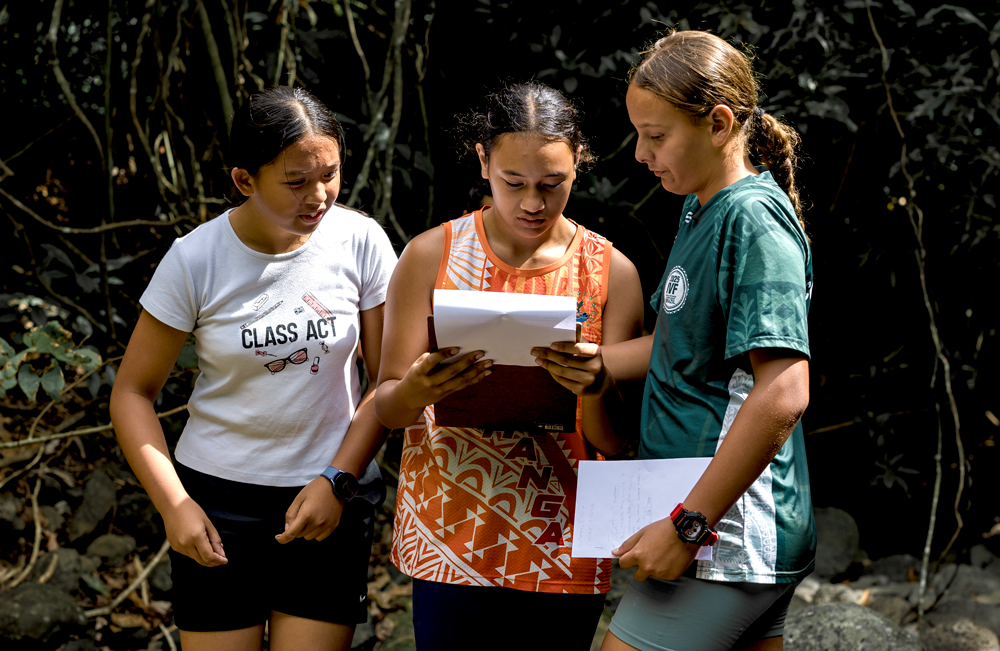Youth Rangers lead the call for stream protection
On October 31, 2025, a group of Apii Te Uki Ou students were a part of a project development called “Youth Rangers” which was an event put together by Muri Environment Care (MEC), National Environment Service (NES) and Te Ipukarea Society (TIS).
The students were given “quests” to complete that included: Testing the water and the difference in temperatures, soil testing and its different textures, animal and plant life that surround the area and coming up with different ideas on how to protect our streams and keep them clean, as well as voicing to the community that work needs to be done.
The GEF-7 Project ENUA Avana and Turangi Catchment Stories is a community-led initiative delivered by Muri Environment Care in partnership with the National Environment Service. Its purpose is to create Catchment Management Plans for the Avana and Turangi streams guiding how we protect, restore and sustainably manage our freshwater systems from the mountains to the lagoon.
Youth Rangers became a project to get students engaged and proactive with the work and care these streams need to stay healthy. At the events, the students all worked together to collect data, test the water of the Avana stream, observe nature, take note of rubbish that they found lying in the streams and come up with solutions that could be put in place to take much better care of our streams.
MEC president Mii Kauvai joined the observation amongst the young students and gave her input and story on Avana Stream and how the dry season is affecting the water intake in people’s homes.
Kauvai said: “At the moment this is the driest time of the year especially now. The water we have now is used to support all the villages that have run out of water. We are very grateful that God has blessed us with a big water intake here. Not only for the people of Ngatangiia, Avana and Turangi, but for the whole of the island.”
Students were beyond eager to get stuck right in, starting with a walk through Avana streams and observing the transformative ecosystem. Students then tested the stream water for any bacteria. The difference in temperature was also noticed in different spots of the stream.
Environmentalist Gemma Langley said: “I hope that people enjoy getting outside and just seeing the streams and thinking about what’s going on around in our environment and what does it all mean.”
Apii Te Uki Ou teacher Declan Sheridan said: “I think it’s a really great opportunity for the students to see a lot of specialist equipment, making decisions about their environment and making better plans for the future.”
While students were out on their quest, they were put to work coming up with solutions to stop the problems that are now happening with our streams. Noticeable impacts included rubbish being dumped into the water, animals being found in the streams such as pigs, dogs and even sometimes goats. These larger mammals are not naturally found in stream ecosystems, therefore causing bacteria to pollute our fresh water, degrading our fresh water ecosystem. Students also put on their reporter hats with Youth Media Cook Islands and presented on camera what problems they found and what can be done about it.
A student Manihiki says: “Since I have been here, I have seen all the problems that need to be fixed and for the future and I would like to see running water.”
On Monday, November 3, we had more Apii Te Uki Ou students out as Youth Rangers to explore Turangi Streams. Though the stream was completely dried out, the students got really stuck into observing the different types of trees and plants that surround the land, finding problem spots like overgrown invasive weeds everywhere and did a rubbish audit – collecting any rubbish that was thrown into the streams.
Students came across a vast amount of rubbish that had been dumped into the stream such as bicycle parts, motorbike tyres, an old muffler and even an old vacuum. Student Chloe said “it is sad to see the amount of rubbish that gets thrown into the stream and eventually ends up into our lagoons and ocean. Something needs to be done.”
MEC, TIS and NES look forward to more events for students to partake in and learn more about our environment and what goes on. Not only is this a school event for the youth to participate in, but this is also a call out to our community. With much to be done, the people are asked to get involved and open their eyes to see what is sadly being done to our streams and the great damage it holds.
Jo Holley, producer/project manager, states: “Youth voice is so important, and it was inspiring to see how engaged and proactive the students were during the Youth Ranger Quest. They eagerly explored different spots along the stream, investigated the pressures impacting each area and came up with thoughtful ideas for how these could be fixed. Many shared their hopes for the future, including introducing regular monthly clean-ups to keep the streams healthy and thriving”.
Little things go a long way and leave healthier impacts on our streams especially for the next generation. We kindly ask you to sort out your own rubbish, stop dumping rubbish, take better care and interest in your livestock and help teach the youth more about our streams, environment and demonstrate how to care for them.
Let us all come together to plan, prevent, sustain, observe and take action.
This week’s article was written by Gabs Napa, an upcoming writer who followed and documented this recent Youth Rangers Programme, which had a focus on stream health monitoring.
Image: The recent Youth Rangers programme, stemming curiosity to conservation in stream science. Photo Credit: Nicole Fuchs

